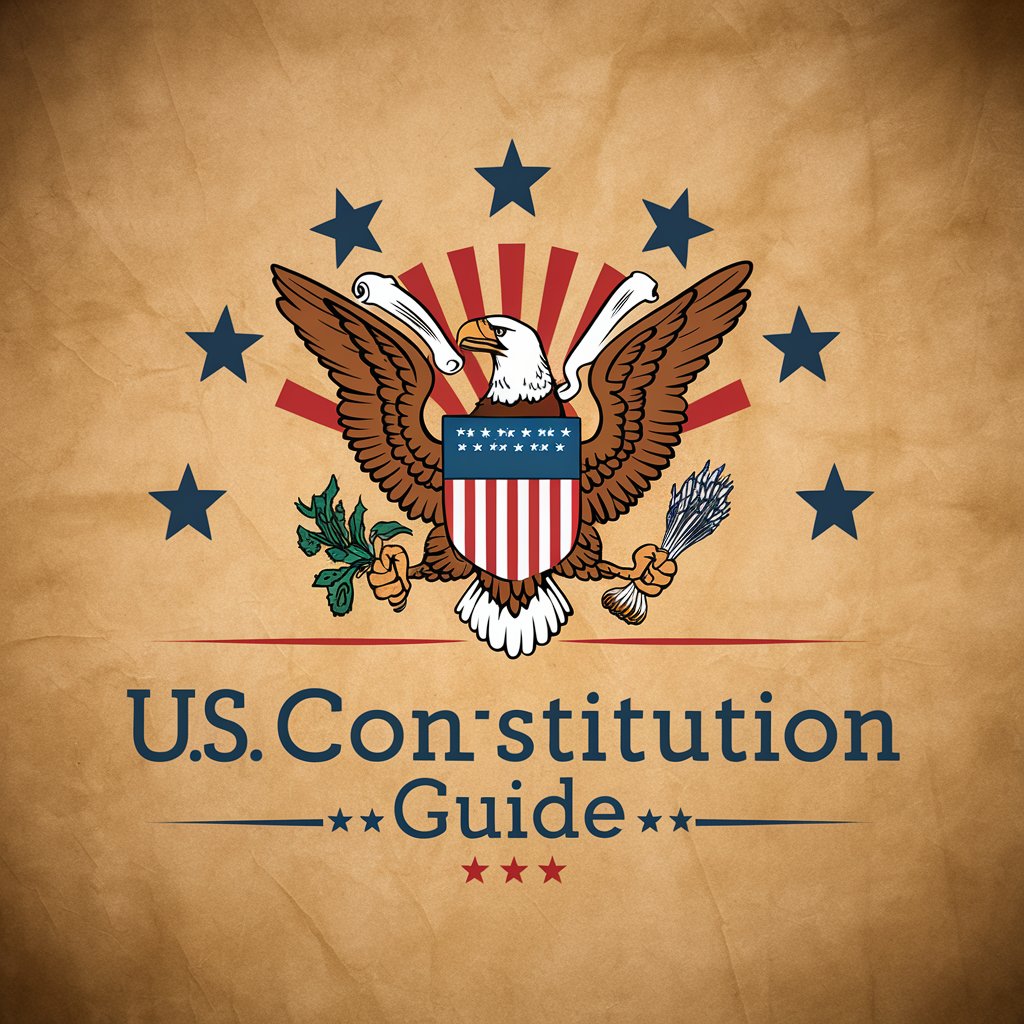Canada Constitution Guide - Canadian Constitution Insights

Welcome! How can I assist you with the Canadian Constitution today?
Demystifying the Canadian Constitution with AI
Explain the significance of the Constitution Act, 1867.
What rights are protected under the Canadian Charter of Rights and Freedoms?
How does the Constitution Act, 1982, differ from the 1867 Act?
Describe the role of the monarchy in Canada's Constitution.
Get Embed Code
Introduction to Canada Constitution Guide
Canada Constitution Guide is designed to simplify the complexities of the Canadian Constitution, making it accessible and understandable to a broad audience. It serves as a professional resource for interpreting constitutional documents, offering insights into their implications and applications in modern Canada. For example, it can elucidate the division of powers between federal and provincial governments, or explain the significance of the Canadian Charter of Rights and Freedoms in protecting individual rights. Powered by ChatGPT-4o。

Main Functions of Canada Constitution Guide
Interpretation of Constitutional Provisions
Example
Clarifying the impact of the Constitution Act, 1982 on Indigenous rights in Canada.
Scenario
A user inquires about the scope of Section 35 of the Constitution Act, 1982, which recognizes and affirms the rights of Indigenous peoples. The guide provides a detailed explanation, outlining the historical context, judicial interpretations, and contemporary implications.
Exploration of Historical Constitution Development
Example
Detailing the evolution of Canada's governance structure from the British North America Act, 1867 to the patriation of the Constitution in 1982.
Scenario
A student seeks information on the historical progression of Canadian federalism for a research project. The guide offers a comprehensive overview, highlighting key amendments and their influence on federal-provincial relations.
Analysis of the Charter of Rights and Freedoms
Example
Examining the significance of freedom of expression under Section 2(b) of the Canadian Charter of Rights and Freedoms.
Scenario
A user questions how freedom of expression is protected in Canada, especially in the context of digital media. The guide provides an in-depth analysis of relevant case law, the balancing of rights, and the Charter's role in safeguarding fundamental freedoms.
Ideal Users of Canada Constitution Guide Services
Students and Educators
Students studying Canadian law or history, and educators teaching these subjects, will find the guide invaluable for understanding the constitutional framework and its practical application in various legal and social contexts.
Legal Professionals
Lawyers, judges, and legal scholars can utilize the guide for in-depth analysis of constitutional matters, aiding in case preparation, judicial decision-making, and academic research.
General Public
Individuals seeking to understand their rights and responsibilities under the Canadian Constitution, or those with an interest in Canada's legal and political system, will benefit from the guide's clear explanations and real-world applications.

How to Utilize Canada Constitution Guide
Start Your Journey
Head over to yeschat.ai for a complimentary trial, accessible instantly without the need for ChatGPT Plus or any login requirements.
Identify Your Need
Determine the specific aspect of the Canadian Constitution you need help with, whether it's understanding a particular law, researching constitutional history, or academic writing.
Navigate the Tool
Use the provided search function or browse through the categories to find information relevant to your query.
Engage with the Content
Read through the simplified explanations and breakdowns of complex legal terms and constitutional provisions to gain a clearer understanding.
Expand Your Research
For in-depth study, follow up with the references and external resources linked within the guide for further reading and comprehensive insight.
Try other advanced and practical GPTs
中文图像识别增强 📖
AI-powered Chinese character recognition.

BABY GPT
Bringing Future Family Moments to Life with AI

ASAC Rocky
Where AI meets unhelpful sarcasm.

Board Games Guide and Recommendations
Discover Your Next Favorite Game

Nutrition Companion by AiMania.one
Your AI-Powered Nutrition Guide

Wednesday
Unveiling the dark, one query at a time.

PacoGPT - mfer intern bot
Craft Unique Scenes with AI

US Constitution Guide
Demystifying the Constitution with AI

Not Lupus
Diagnostic genius at your fingertips.

Consistent Style Illustrator
Bringing Stories to Life with AI-Powered Illustrations

Real Estate Radar
Your AI-Powered Real Estate Insight Tool

Software Sage
Empowering choices with AI-driven software recommendations.

FAQs About Canada Constitution Guide
What is the Canada Constitution Guide?
It's a digital resource designed to simplify the complexities of the Canadian Constitution for a wide audience, making legal concepts accessible and understandable.
Who can benefit from using this guide?
Students, educators, legal professionals, and anyone interested in learning more about the Canadian Constitution will find this guide particularly beneficial.
Can I find information on specific constitutional amendments?
Yes, the guide offers detailed explanations and analyses of various constitutional amendments, including historical context and impact on Canadian law and society.
Does the guide provide legal advice?
While the guide provides comprehensive information on constitutional matters, it is intended for educational purposes and does not constitute legal advice.
How often is the content updated?
The guide is regularly updated to reflect changes in the Constitution, recent legal interpretations, and to incorporate new educational materials.
